- europages
- >
- COMPANIES - SUPPLIERS - SERVICE PROVIDERS
- >
- water plants
Results for
Water plants - Import export
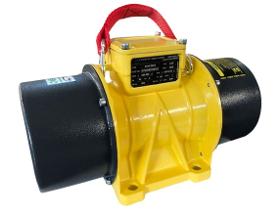
TEMAS GROUP EXPORT PARTNERS
Turkey
Our vibration motors are manufactured using top-quality metals, such as a special blend of aluminium injection and ductile ggg 40 cast iron, in an IP66 protection standard. They offer various speed, frequency, and voltage options for maximum efficiency. We conduct thorough analyses, tests, and research and development studies before and after casting to produce premium-quality products. Vibration motors are a type of motor that generate vibrations using electrical or pneumatic energy. Vibration motors are utilized in various industrial machines that require vibration energy such as food and flour factories, construction, subways, motorways, hydro power plants, forced water tunnels, steel mills, concrete factories producing prefabricated elements, mining, and asphalt and cement plants. Additionally, they are employed in the operation of sand dewatering machines, recycling plants, steel and similar silos, feeders, sieves, vibratory discharge channels, compaction and flow processes.
Request for a quote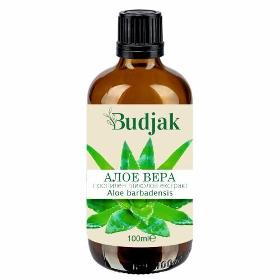
BUDJAK LTD
Bulgaria
Aloe Vera extract (Aloe barbadensis) 100 ml. Propylene glycol extract of aloe is a modern product in the field of cosmetology, actively used in the industrial and home production of cosmetics. Propylene glycol is used as a liquid base, which has a number of advantages: the ability to dissolve fat- and water-soluble plant components; increasing the use of products; delivers valuable cosmetic components to the dermis. Aloe enriches the product with phytohormones, enzymes, polysaccharides, vitamins A, C, B, which have a beneficial effect on the condition of the skin and hair. The extract is ideal for creating a classic gel. This gives you matte skin and tight pores. Aloe saves from burns, heals, moisturizes the skin and hair, heals. INCI: Propylene Glycol (and) Water (and) Aloe Vera Leaves Extract Packaging : glass bottle; aluminum can more order.
Request for a quote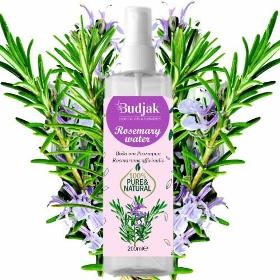
BUDJAK LTD
Bulgaria
Rosemary floral water (Rosmarinus officinalis) 200 ml. Rosemary hydrolat (floral water) is a product of steam distillation of a rosemary sprig. The collected steam condensate is a medicinal liquid that contains the water-soluble beneficial components of the plant. Rosemary floral water can be incorporated into daily skin and hair care, offering refreshing and beneficial properties. This product combines the aromatic and healing properties of rosemary and is commonly used in cosmetics and aromatherapy. Properties of Rosemary Floral Water: 1. Stimulating fragrance: Rosemary has a fresh and stimulating aroma that can be refreshing and uplifting. 2. Toning effect: Rosemary Floral Water can be used as a skin tonic that tones and refreshes. 3. Antiseptic properties: Rosemary is known for its antiseptic and anti-inflammatory properties, which can be beneficial for the skin.
Request for a quote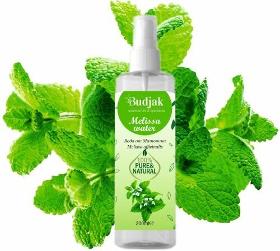
BUDJAK LTD
Bulgaria
Floral water from Lemon balm (Melissa officinalis) 200 ml. Lemon balm floral water soothes and improves the condition of sensitive and irritated skin in case of inflammation, dermatitis or allergic reactions. Lemon balm floral water (Melissa officinalis) , also known as "lemon mint" floral water, is obtained by distilling the flowers and leaves of the plant. This water has a characteristic light and fresh aroma reminiscent of lemon. Properties of Matochina floral water: 1. Calming action: Lemon balm is known for its calming properties and can help with stress and anxiety. 2. Antiseptic effect: It has antiseptic and anti-inflammatory properties that make it suitable for skin care. 3. Antispasmodic action: Helps in relieving tight and spasmodic muscles. 4. Antimicrobial action: May help fight bacteria and germs. Effect of the floral water from Motherwort : In anti-aging care, lemon balm hydrolate will help boost skin turgor, tone and improve skin microrelief.
Request for a quote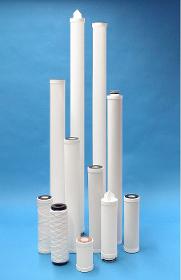
PORE FILTRATION
United Kingdom
Widely used and favoured for drinking water treatment and beverage production where chloramines are not present; the SCB is formulated from low ash content, microporous coconut carbon that targets VOCs and THMs. Acid wash during the production process and low fine content give excellent rinse-up times as well as regulating pH and taste. The CleanPore Carbon also gives improved flowrate and lower pressure drop than the PCB, reducing the size of the housing required, making it a firm favourite for drinking water, pre-RO and applications where end product consumption is a consideration. Typical Applications: • Drinking water • VOC and THM reduction • RO protection
Request for a quoteDo you sell or make similar products?
Sign up to europages and have your products listed

OSMO MEMBRANE SYSTEMS GMBH
Germany
Coating colour recycling at paper and cardboard industries During the production of coated paper, it has to be cleaned with water and so, waste water results with pigments of the coating color. Because of their properties, exisiting precipitation plants are working hard on these types of waste waters. Alternatively to precipitation plants, membrane filtration technologies can be used to recover these high-value coating pigments. For that, the water with coating color pigments is circulated through the membrane plant until the required concentration is reached. The permeate is free of particles the CSB value is reduced significantly. It can know be handled by the precipitation plant, which is relief by the removing of the pigments. The concentrate with coating color pigments will be recirculated into the production process. Advantages: Reduction of coating color and pigments consumption Reduction of solid amounts in the waste water, which means reduction of operation costs
Request for a quote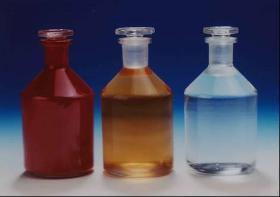
OSMO MEMBRANE SYSTEMS GMBH
Germany
Recovery of flexoprint dye Picture: printing dye (red); ultrafiltrate (orange); nanofiltration permeate (clear) Application: Conditioning and concentration of cardboard printing dyes (flexo print), e.g. paper bag manufacturing, corrugated board manufacturing. Conditioning of the rinse waters by ultrafiltration(UF): Recovery and recycling of dyes, separated by tonality Further conditioning of the permeate by nanofiltration(NF): Recovery of the rinse water Further conditioning of the UF-concentrate by evaporation / distillation as pre-stage for external disposal Advantages of the process: Recovery of dyes separated by tonality is possible and established Recirculation of the rinse water is possible and established Reduction of the waste water amount At existing waste water treatment plants (based on precipitation) amounts of sludge can be reduced enormously Compact and modular design Fully automized process - low personnel costs High degradation rate and efficiency (concerning CSB, Cu,
Request for a quote
MAKOSH EU
Poland
4,9% humic acids 2,8% organic carbon content 1% potassium 9,0÷11,4pH Increase in yield and improvement of crop quality. Improvement of soil structure. Increase in the availability of nutrients for plants. Increase in vegetative plant mass. Enhancement of root system development. Increase in root length and their strengthening (allowing the plant to absorb water from deeper soil layers and better utilize nutrients). Enhancement of plants’ natural disease resistance. Promotion of chlorophyll, sugars, and amino acids formation in plants and contributing to photosynthesis. All technical data and certificates available on the website. For more information or to request prices, please use the contact form.
Request for a quote
VENRIUS B.V.
Netherlands
Electromagnetic flow meters are widely used in the water & wastewater, food & beverage, life science/pharmaceuticals, oil & gas, pulp & paper, chemical, and other industries. Typical applications for electromagnetic flowmeters to control the flow of cooling water for various processes. Electromagnetic flow meters are also frequently used in the field of water supply and drainage in public utilities for the transfer measurement of finished product water and raw water in water plants. Magnetic flow meters are also used in the paper industry's pulp process to measure the flow of grinding pulp, water, acid, and alkali; and in the coal industry to measure coal washing and pipeline hydraulic conveying coal slurry. It is used in the food and beverage industries for beer and beverage filling measurement. It is also used in the chemical and petrochemical industries to measure corrosive liquids such as acids and alkalis.
Request for a quoteResults for
Water plants - Import exportNumber of results
10 ProductsCompany type